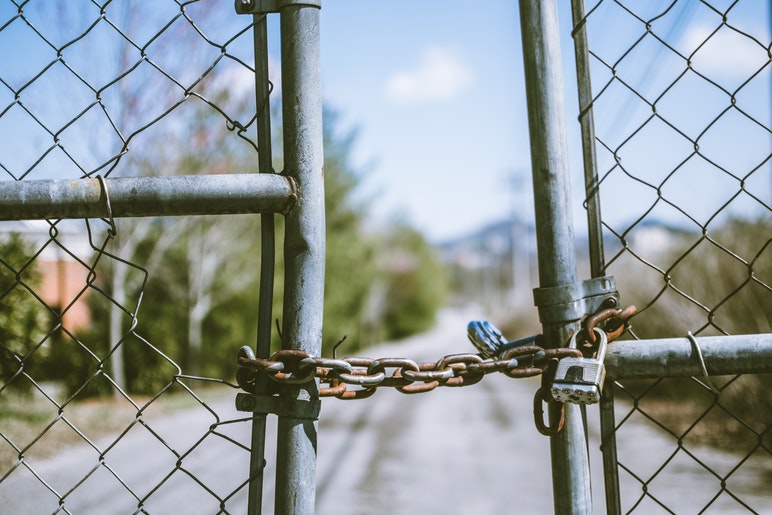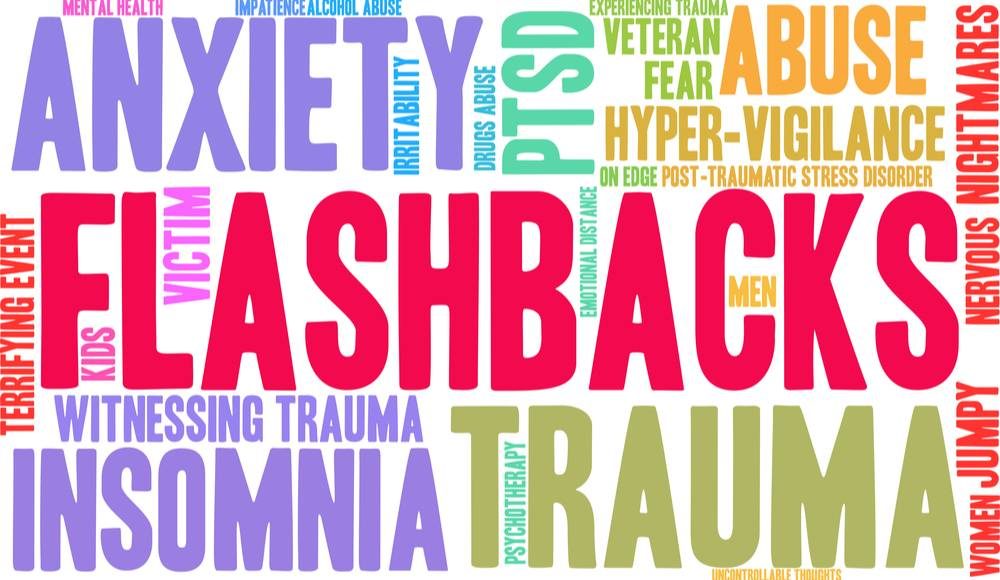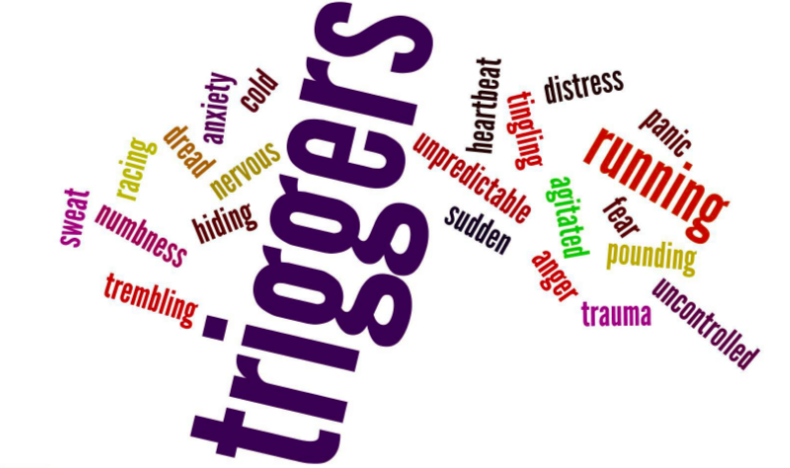Boundaries, Trauma, and the Body

Did you know that we communicate boundaries nonverbally in the way we carry our bodies?
Our bodies hold beliefs that energetically let others know how they can or cannot interact with us. How does it happen? All our interactions {as well as past traumas} imprint a "template" of how we show up in all areas of life; in self-care patterns, love relationships, work dynamics, and family roles.
How non-verbal boundaries + beliefs develop?
Based on attachment theory, our early relationships impact the beliefs we carry about ourselves, in our minds and how we hold our bodies. These beliefs affect the expectations we have from relationships as well. These are fed by how mom, dad, aunt, uncle, grandpa, social group or neighbor interacted with and treated us. As we go through the many phases of life, our internal template solidifies with self concepts, beliefs about others and the world at large. Such as:
I am allowed ____
You are allowed to_____
They are allowed _____
The world is a ______ place
I can expect _______
I can say no when _______
I can say yes when _____
Childhood Formative Experiences Impact Boundary Development
Secure Boundaries:
If I have experiences where I sense that I am valued, loved and seen, I will have a good instinct as to what feels healthy and what feels toxic.
Since I’ve been seen, heard, held and responded to with respect, I will easily provide that for others when interacting with them. I know my boundaries and stick to them. Even if I have different limits than you, I can hear and honor yours as I trust there’s a reason you have them in place. I can also tend to my disappointment on my own, though of course it’s still difficult.
Rigid Boundaries:
If I’ve had rejecting experiences where I had to shut my feelings out to exist, where I had to fend for myself and there was no one reliable I could trust, I developed a hardened shell where I keep people at arms length. I may have had cold, disengaged caregivers/parents/social group who gave no space to my thoughts, feelings or ideas, and I was shut down as soon as I attempted to engage in conversation or speak up.
As an adult, I am afraid of being hurt or ignored again, and I have to maintain my energy to protect myself. I may step on other peoples’ boundaries with or without realizing; I’m hyper focused inward so I don’t focus on others or their needs. I can come across as harsh, cold or even mean-spirited, but it’s really a simple survival defense.
Permeable Boundaries:
I’m told that if I misbehave or say “No” then I won’t get love, hugs, snuggles, party time or smiles {or in severe cases, food and shelter}. I will ditch my boundaries or needs so I can survive. Especially If I am getting my basic needs from a caregiver, or family member who is also hurting me, I will mute my voice as it threatens my survival. Or, if I will be judged, ostracized or emotionally distanced if I speak up about something that makes others uncomfortable, I may choose to stay silent so I don’t get left out.
If you’re like most people, you’ve had a blend of the above experiences.
No one has a “perfect” way of setting limits, it’s a skill we all need to cultivate. At the same time, I do want to note that some people have had less spaces to learn about safety, set boundaries and have their voices honored. Regardless where you fall on the spectrum, you can improve the way you set boundaries.
First, let me explain scientifically why you might be struggling today from a trauma perspective, and further down we’ll give you some tips!
Common Trauma & Survival Responses
In face of danger, the body gets signals via body sensations so that your body finds a way to keep you alive.
Based on how close by or big the danger is, the body either engages in fight/flight - preparing for action or, freeze- where the body prepares to tolerate and endure the pain rather than run away. Or, the body might go into collapse; where the body goes into a conscious or unconscious form of “feigned death” to be less appealing to the perpetrator.
These are defensive responses all promoting survival, and necessary for all of us. However, when these stay on our templates as time passes, we may have a problem.
When trauma gets trapped in the body & how it shows up today.
The body may stay in the alert it got at a time of danger and have that “imprinted” as a go-to whenever you sense danger today.
For example, if someone is seeking intimacy and closeness and you perceive that as them wanting to hurt you, you may lose out on the deep, meaningful connection your partner is seeking. Or, you might respond to daily stressors as if they were life threatening because your nervous system processes danger as “high alert”.
This might explain why you have a full blown panicked afternoon when your kids fight or your boss gives you a disappointing look. Your body’s alert went off, but didn’t signal that you’re ok, that you can calm down so you can respond and engage with the issue and responsibility at hand.
Or, you might completely disengage and have no response to stressors because your body may have gotten stuck in freeze or collapse. This can leave you feeling shocked, frozen and incapable of responding when confronted with an overwhelming {and objectively tolerable} issue at home, with family dynamics, in parenting, at work or in your love life.
Unprocessed trauma might appear today; in the boundaries you do or don’t set.
Disarming defensive responses & re-aligning boundaries:
If it was dangerous to speak up, say no, take care of yourself or set boundaries in the past, you may need to help you mind + body relearn how to take care of yourself and set new boundaries. These are needed for being successful as an adult and showing up to life today.
Push-back or being challenged by others as you set new limits does not mean danger; it simply means you’re being challenged. As an adult, you can do tough things and respond to challenges. As an adult, you have more choices now than when you were younger or at a more vulnerable time.
How your body talks to you.
Do you know that feeling that lets you know someone is in your personal space? It may be an urge to lean back or step to the side. That’s a communication coming from your body, a somatic felt-sense body signal letting you know how to care for yourself. Our bodies sense things quicker than our minds process information, so it’s important to be tuned inward and trust your body’s gut compass.
Reestablishing a healthy “gut feeling”
In trauma, the body’s internal compass and gut may get stuck on “trauma time” and have difficulty tracking “here-and-now”. Let’s help adjust that! If you notice that you’re on edge, feel insecure or doubtful in your relationships, or over-share because you’re not sure of what is appropriate, ask yourself these questions to help.
1) What beliefs do I carry about myself?
Where did I pick these up from? Are they mine or did I ‘borrow’ them from someone else? If borrowed, {and maybe true at some point} are they still true today?
2) Am I practicing being in the present moment {Mindfulness} when I am connecting with others?
What happens when I slow down and practice presence with my thoughts, feelings and reactions? Can I track past from present safety?
3) What do I expect from others, the world, and myself?
How can I show up differently so I can feel my needs being responded to better?
4) What one boundary feels vital for me to set starting today?
What’s one step I can take towards setting that limit?
We all want to feel secure, connected, accepted and loved; you, your kids, your partner, your friend and your work mates. It takes finesse and being aware of the nuances in the relationships you’re in to know how and when to introduce shifts.
The good part? When you start setting boundaries, others pick up on the cues and follow your lead.
Boundaries are one of those things where you need less words, rather shifts in action speak volumes.
When you do the internal work to show up differently, you may notice subtle changes in relationship dynamics. You can shift the way you show up, and the way you experience life, love and the world.
If you feel like it’s time to shed the “survival” boundaries you’ve been carrying and invite more love and ease, read here for 5 Tips to Better Boundaries Today!
If you're seeking more, it may be time for counseling.
Need help finding the right therapist in your neighborhood? I’d be happy to help, click here to get in touch.
*origionally posted on integrativepsych.co
Esther Goldstein LCSW Is An Anxiety and Trauma Specialist With A Private Practice In Cedarhurst, NY. Esther Specializes In Treating Professionals With Anxiety, Survivors of Trauma And Individuals Who Want To Have More Meaningful Relationships. Specialty Areas Include: Family-of-Origin Work, Inner-Child/Ego State work, Trauma Treatment, Attachment Traumas, Complex Ptsd And Dissociative Disorder Treatment. As Well, Esther Provides Trauma Informed Consultation To Therapists Committed To Improving Their Trauma-Informed Practice And Attachment Focused EMDR Consultation To Therapist Attaining Hours Towards EMDRIA Certification. Esther's Website Is Integrativepsych.Co
Frum Therapist exists as a website one can use to locate the top Frum professionals in your area or around the world. Learn more about the world of therapy, or sign up for ongoing education!











